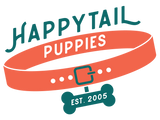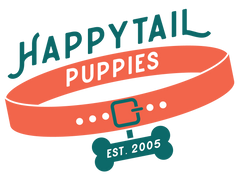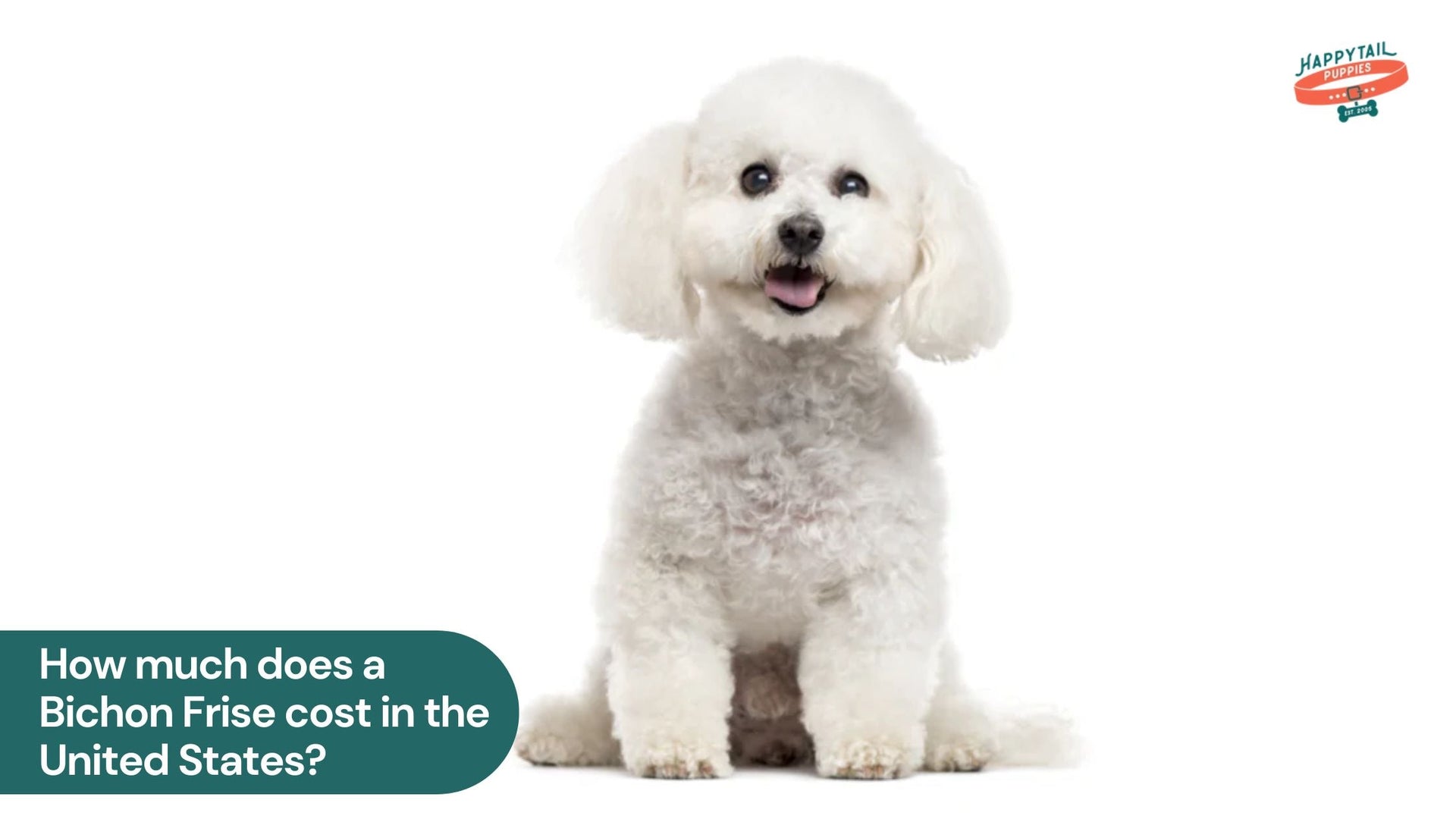How much does a Bichon Frise Cost in the United States?
Bringing a Bichon Frise into your home means understanding the financial commitment involved. From the initial purchase price, influenced by breeder reputation, pedigree, and location, to ongoing costs like grooming, nutrition, and veterinary care, discover all the factors that determine the true cost of owning this intelligent and affectionate hypoallergenic dog.
There is a renowned breed that has garnered immense fame as one of the highly intelligent, affectionate, and hypoallergenic dog breeds in American households. The Bichon Frise, known for its petite structure, makes it the perfect addition to families, apartments, and senior communities. They are well-known for their loyal nature, which makes them a forever companion. Adding a Bichon Frise to your family is not just about selecting a pup but also about understanding the financial commitments you should plan for. Several factors influence pricing, including healthcare, breeder practices, and regional demand. A closer insight into the factors will give prospective owners a better idea of what to expect from the Bichon Frise price.
What Determines the Cost of a Bichon Frise?
The price of a Bichon Frise is often influenced by several factors that extend beyond the initial purchase. Every factor plays a crucial role in setting the right expectations for what you can expect to pay. Here are a couple of vital elements that future pet owners should consider.
Breeder Reputation and Quality Standards
Ethical breeders prioritize the well-being of their animals and maintain high integrity. Even to someone who may be asking the question, 'How much does a Bichon Frise cost? The answer is most often based on this aspect of care. These breeders conduct genetic testing to ensure that puppies are not prone to inheritable diseases. They also vaccinate the puppies and keep them in safe and clean environments, providing early socialization. Likewise, if you wonder how much a Cavapoo puppy costs, it is essential to understand the factors involved, such as the Poodle's hypoallergenic traits and the careful breeding practices that directly impact the pricing.
Deciding on a breeder solely because the price is lower can result in health or behavioral problems in the future. Backyard breeders or puppy mill puppies may be poorly socially developed during their early lives and may develop long-term problems, which can be costly to address. When it comes to responsible breeding, the price range of $1,995 to $2,995. It is an investment that will bring you comfort in knowing the health and care in which your puppy was raised.
Pedigree, Bloodlines, and Show Potential
Bichon Frise, bred from champion lines, usually fetches higher prices. These puppies can possess better physical qualities, complemented by the right temperament, as per breed standards, and thus can be utilized in dog shows or breeding programs. Such characteristics take years of selective breeding and planning, thus making these dogs even more valuable. Similarly, if you consider other similar breeds, you might wonder how much Poodles cost. In this case, the champion lineage, health testing, and the breeder's reputation directly contribute to higher prices.
Pedigrees are not as important to buyers who are interested in companion pets only; nevertheless, they are not entirely disregarded. Well-documented lines of puppies usually have more foreseeable temperaments and health results. Pet-quality pups out of champion lines may run as high as $2,000 to $4,000 due to continued dedication to quality breeding on the part of the breeder.
Health Screenings and Veterinary Care
Responsible breeders ensure that all puppies receive comprehensive veterinary care before transferring them to a new home. The purchase of items such as vaccinations, deworming, microchipping, and even spaying or neutering processes is often included in the cost. This service lays a solid health foundation for the puppy and helps owners save a significant amount of money on veterinary services over time.
The other aspect emphasized by the American Veterinary Medical Association (AVMA) is the need to provide early healthcare in order to prevent severe diseases. Breeders must be requested to provide buyers with health certificates and documents acknowledging that such checks have been done. Breeders who do not follow such steps might result in low prices for their puppies in the short term, but expensive costs in the long term.
Regional Pricing Variations
Bichon Frise prices may vary significantly depending on the locality. Cities and places with higher demand tend to have higher prices, as the overhead costs of breeders and the shortage of puppies are factored into the higher prices. In large cities such as Los Angeles or New York, prices are usually $ 3,500 and even more
Less populated regions or rural areas may have lower prices, with costs ranging from $1,200 to $ 2,000. However, customers in these locations often travel long distances to find a reputable breeder. There are transportation costs and accommodation costs that need to be considered when buying a puppy from another region that is not your local area. For instance, if you consider other small breeds, then you might wonder, "How much does a Sheepadoodle cost? “Then, you will find varied costs that depend on the breeder's location and associated travel expenses.
Coat Color and Rarity
Other colors of coats in a Bichon Frise, such as blue, silver, or a parti pattern, are less common and usually command a higher price. This is mostly due to the preference of buyers and the scarcity of these colorations in litter. Breeders can add $200 to $600 to the coat-shade exceptional puppies.
Although color may be considered a factor in price, potential owners are advised to keep in mind that it does not affect the dog's temperament, intelligence, or overall health. It is much more essential to ensure a healthy, well-socialized puppy born of a responsible breeder rather than concentrate on the aesthetic aspects of a coat.
Age of the Puppy
Cost may also be affected by the age of the Bichon Frise at the time of purchase. Puppies that are eight weeks old are highly desired and are typically the most expensive. A Bichon Frise that has passed its puppy stage and is now a young adult may be offered at a slight discount, as breeders may want to find permanent homes for them.
Some benefits of adopting an older puppy include that some training and socialization have already been completed. Nevertheless, it is essential to make sure that the discount does not involve health or behavioral issues. Ensure you request detailed records of a puppy that is older than the typical adoption age.
Breeder Location and Transportation Options
Breeders in remote areas can even offer shipping services at an additional cost. The cost of transporting a puppy by air typically ranges between $300 and $500, depending on the specific airplane and flight route. Ground transportation services also increase the cost, but could also be more relaxing for the dog.
Depending on the type of cost-effective buyer using breeders, one should also consider the cost of travel, such as gas or the cost of air transportation, or the cost of moving to visit the breeder in person. Budgeting for such costs helps you avoid any surprises when making preparations to take your new puppy home.
Demand and Availability of Litters
Demand for a Bichon Frise, particularly in specific areas or during certain seasons, may increase its value. Others keep waitlists, and the puppies can be sold several months before they are born. Scarcity usually necessitates high prices as consumers strive to secure a limited supply.
It is often worth the wait to get a puppy from a quality breeder litter because such puppies are more likely to be health-guaranteed and well-socialized. Breeding also develops a sense of patience in the process, allowing you to end up with a well-loved and healthy companion rather than relying on a less credible supplier for such companions.
Additional Costs to Consider
Having a Bichon Frise comes with some ongoing costs that extend far beyond the initial purchase price. Planning for these expenses means you can provide a happy and healthy life for your pet throughout its entire life.
Professional Grooming Needs
Without a shedding coat that is curlier than most coat types, the Bichon Frise will also need regular grooming to prevent mats and tangles. Regular grooming. After every four to six weeks, a professional grooming session is vital, and each visit can cost between $60 and $ 100, depending on the experience of the groomer and their location.
Proper coat care at home can help, but it is not a substitute for professional care. Tasks such as brushing and simple trims are essential components of home maintenance. Owners are also advised to purchase effective grooming equipment to ensure their dog is comfortable and presentable.
High-Quality Nutrition
A healthy diet tailored to the needs of a Bichon Frise can help maintain its energy levels and life expectancy. Quality kibble or wet food suitable for small breeds can be purchased for approximately $50 to $80 per month. The owners are advised not to feed their pets low-quality food, as poor nutrition may lead to digestive problems and chronic illnesses in the long run.
Feeding is supplemented with additional treats and dietary modifications as needed due to health conditions. Consulting with a veterinarian about the most suitable food choices helps ensure that the dog's special nutritional needs are addressed.
Routine Veterinary Care
To maintain a healthy Bichon Frise, it is recommended that they visit the veterinarian annually for wellness exams, vaccinations, and parasite prevention. Average expenses range between $ 400 and $ 800 annually, depending on where you live and the prices at veterinary clinics.
It is also necessary to practice preventative dental care because Bichon Frises are predisposed to oral health issues. Dental cleanings and at-home dental hygiene practices can decrease the chances of infections and potentially avoid expensive procedures in the future.
Pet Insurance and Emergency Funds
Pet insurance makes it possible to avoid unexpected costs because of unforeseen accidents or illnesses. The policy is charged an average of $30-70 per month, with policies differing in the extent of coverage. Insurance provides peace of mind, particularly in instances where the breed is prone to certain hereditary disorders.
The American Kennel Club (AKC) advises that pet care should be planned by setting up an emergency fund. With insurance, an owner should expect to pay out-of-pocket expenses, such as meeting deductibles and other uncovered treatments.
Training and Socialization Classes
Training your Bichon Frise at an early age is crucial in shaping its behavior. Basic obedience classes and puppy kindergarten may cost $200-$500 and offer advantages, such as better socialization and improved bonds between the owner and the dog.
Serious training, agility classes, or individual lessons could be worth experimenting with when your dog reaches an older age. These stimulating exercises keep their minds occupied and are also beneficial in stopping behavioral problems associated with boredom in such a highly intelligent breed.
Pet Supplies and Equipment
Toys, food bowls, toys, a leash, a harness, grooming tools, a crate, and bedding are all essentials for a Bichon Frise. These supplies can be expected to cost around $300-$600 initially.
Time consumes significant costs as pieces are damaged due to wear and tear, and the expansion of requirements necessitates replacing and upgrading. Pre-planning such purchases can make your home well-prepared to accommodate your new companion with optimal comfort and safety.
Boarding and Pet Sitting Services
The traveling owners are advised to save on kennels or babysitters. Pricing ranges extensively, with prices typically falling within the $30 to $ 70 per night range. The luxury boarding facilities, which provide playtime, grooming, and training during their stay, are even more expensive.
Bringing a reputable pet sitter to care for your Bichon Frise at home can create a less stressful environment for the dog. It takes studies and recommendations, as well as possibly a visit to a care facility, to find a reliable one where your pet will feel comfortable and safe.
Conclusion
Owning a Bichon Frise goes way past the price tag. It's about welcoming an intelligent, loyal, and loving little furball into your household. These dogs, although small, add amazing joy, laughter, and companionship to their families. Although the upfront costs are a huge undertaking, they mark only the beginning of a journey that unfolds during grooming sessions, long walks, vet visits, and plenty of cuddles on the couch. It is essential to take the time to select a breeder and plan for their long-term needs. When you're prepared to add a Bichon Frise to your home, you'll quickly find that all the effort and costs are worth it as they fill your life with everlasting love.


